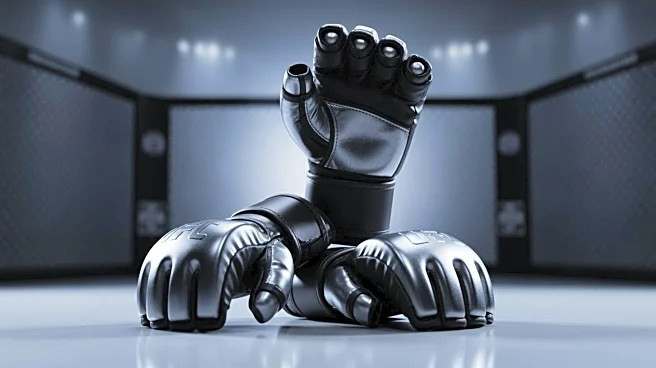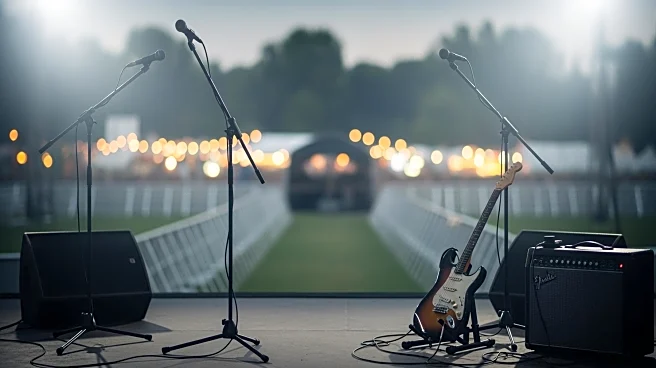What's Happening?
Anatoly Malykhin, a two-division ONE Championship titleholder, provided insights into the recent UFC 321 fight between Alexander Volkov and Jailton Almeida. The fight, held in Abu Dhabi, saw Volkov emerge victorious by split decision. Malykhin noted that
Almeida managed to take Volkov down easily, which is uncommon given Volkov's strong takedown defense. Despite this, Volkov demonstrated effective fighting from his back and maintained aggression while standing. Malykhin highlighted that current promotions prioritize entertainment, which influenced the decision in favor of Volkov. Almeida's wrestling style, which lacked striking or finishing attempts, was less appealing to judges and audiences.
Why It's Important?
The decision in this fight underscores a shift in UFC judging criteria, where entertainment value is increasingly prioritized over traditional wrestling techniques. This trend could impact fighters who rely heavily on grappling, as they may need to adapt their styles to align with audience and judge preferences. The outcome of this fight reflects broader changes in MMA, where striking and aggression are becoming more valued. This shift could influence training strategies and fight preparations across the sport, potentially disadvantaging fighters who excel in ground control but lack striking prowess.
What's Next?
As the UFC continues to emphasize entertainment, fighters may need to adjust their strategies to align with these preferences. This could lead to a greater focus on striking and aggressive tactics in training camps. Additionally, fighters like Almeida, who rely on grappling, might need to incorporate more dynamic elements into their fighting style to remain competitive. The UFC's evolving criteria could also prompt discussions among fighters, coaches, and promoters about the future direction of the sport and how to balance entertainment with traditional martial arts techniques.
Beyond the Headlines
The shift towards entertainment in UFC judging raises questions about the integrity of martial arts as a sport. Traditionalists may argue that this trend undermines the technical aspects of MMA, which have historically valued grappling and ground control. This evolution could lead to a cultural shift within the sport, where fighters prioritize crowd-pleasing techniques over technical mastery. The long-term implications may include changes in how future generations of fighters are trained and how the sport is perceived by both practitioners and fans.

















